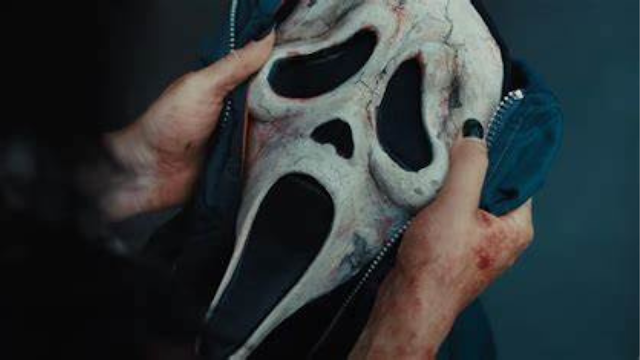Ever since Sidney Prescott asked audiences nearly 30 years ago "how do you gut someone?" with such disgust, the "Scream" franchise has forced a stab-hungry audience to question how they could ever entertain a ritual so violating as the gruesome act taking someone else's life.
Last year, Matt Bettinelli-Olpin and Tyler Gillett delivered arguably the franchise's strongest offering yet. Strong because the film played its game very well. These guys also know that subversion in film is fun, certainly, but also that films which sell themselves on their subversion tend to be very hollow. You need a strong thematic lifeblood and a cast of characters to root for. If your audience is more excited about the cut-up bodies than the victors, you have a problem. This is where the newer films, including this most outing, have found their strength.
Scream VI sees the survivors of the last installment making a fresh break in New York City. Sam, Tara, Mindy, and Chad are joined by some new ensemble members, as well as legacy characters Gale Weathers and Kirby Reed. Notably absent is franchise protagonist, Sidney Prescott herself. Her non-participation is rationalized as, "She deserves her happy ending." (But apparently not fair pay ... zing!) Ghostface is also back, and he's here to sow more terror. If any of these guys are going to make it to the next sequel, they're going to have to question what it really means to be a survivor.
That these directors understand why a person would feel emotionally invested in a slasher film not only makes for a well-crafted slasher film, but it also poses a sort of counter-argument to the uncomfortable questions inherent within a genre. "How do you gut someone?" More pointedly, how do you watch? This sequel's answer seems to be to commit to its theme of found family among survivors, and the results yield return on return. The chase sequences are more intense because you genuinely don't want to see these characters hacked down. The victories are more gratifying because these heroes have earned it. The in-between bits are more entertaining because they're just swell chaps.It is a little ironic, then, that the film aspires to deconstruct and disavow (and mostly succeeds) the genre's inescapable masochism while also unleashing violence in greater amount and greater severity. It isn't just that the film continues the genre's tradition of blending death and spectacle. The film follows through with its promise to deliver more gruesome deaths than we've seen yet in this franchise. Without giving specific spoilers, be prepared to see one body dismembered and stuffed in a kitchen appliance, one victim falling from a great height and snapping their neck on the way down, and multiple knives through multiple faces. However long the film spends looking in the mirror, it still defaults to the notion that even if we're not explicitly cheering for more grizzly violence, there is still some satisfaction to be had from seeing mounting displays of increased carnage.
I won't fault the film for still being a little in the dark (though not a historically great place for the characters in said films to be ...) in how one finds that balance. The questions of audience participation and voyeurism have tormented film audiences for a century. Maybe it'll take until Scream 29 to really answer that question. An exhausting notion, certainly, yet under Matt and Tyler's direction, I'm sure it would be a fascination one as well.
--The Professor



Comments
Post a Comment